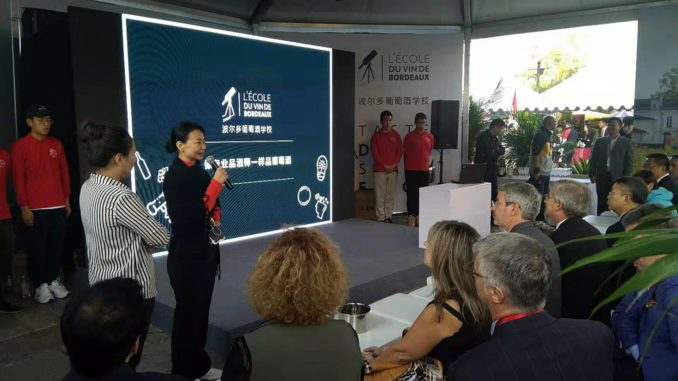
As a veteran in tourism and event planning, Zhang Dongli has a long history of pairing France and China. Zhang’s most recent project, Bordeaux Fete Le Vin, aims to get them raising far more glasses, too.
Zhang’s life in wine began with the French Tourism Office in Beijing, where she promoted French cities and assisted tourism agencies and programs. That led to projects involving Bordeaux and specifically Saint-Émilion: she was the first tourism officer for China and handles Jurade de Saint-Émilion activities here. It also led her to the Bordeaux Wine School, where she became a CIVB-certified trainer.
On top of this, Zhang started a company to import Bordeaux wine and held events featuring regional brands. And, further strengthening the China-France link, she is establishing a winery in the Ningxia region with the help of veteran Nicolas Billot-Grima, whose first wine-making job in China was at Huadong winery in Qingdao in the late 1980s.
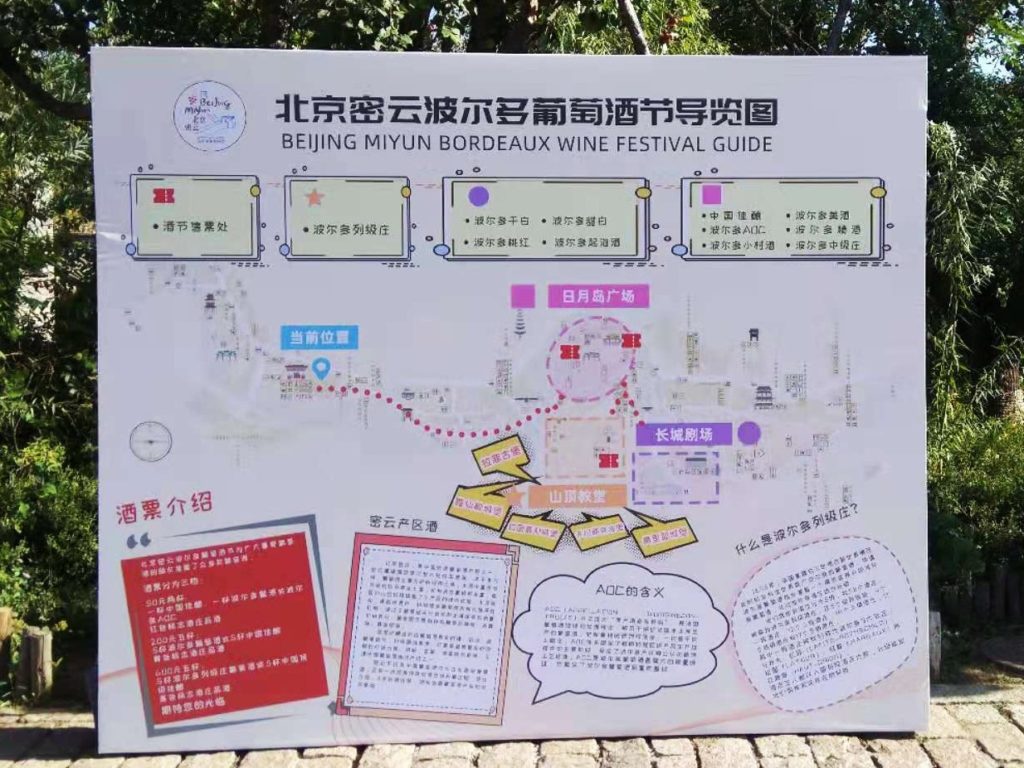
But it’s the Bordeaux Fete Le Vin that currently offers much promise, especially given both France and Bordeaux have been losing market share in China in recent years, especially to New World upstarts Chile and Australia. Reaching new waves of consumers will be essential to maintaining, and possibly boosting, the Bordeaux presence in China.
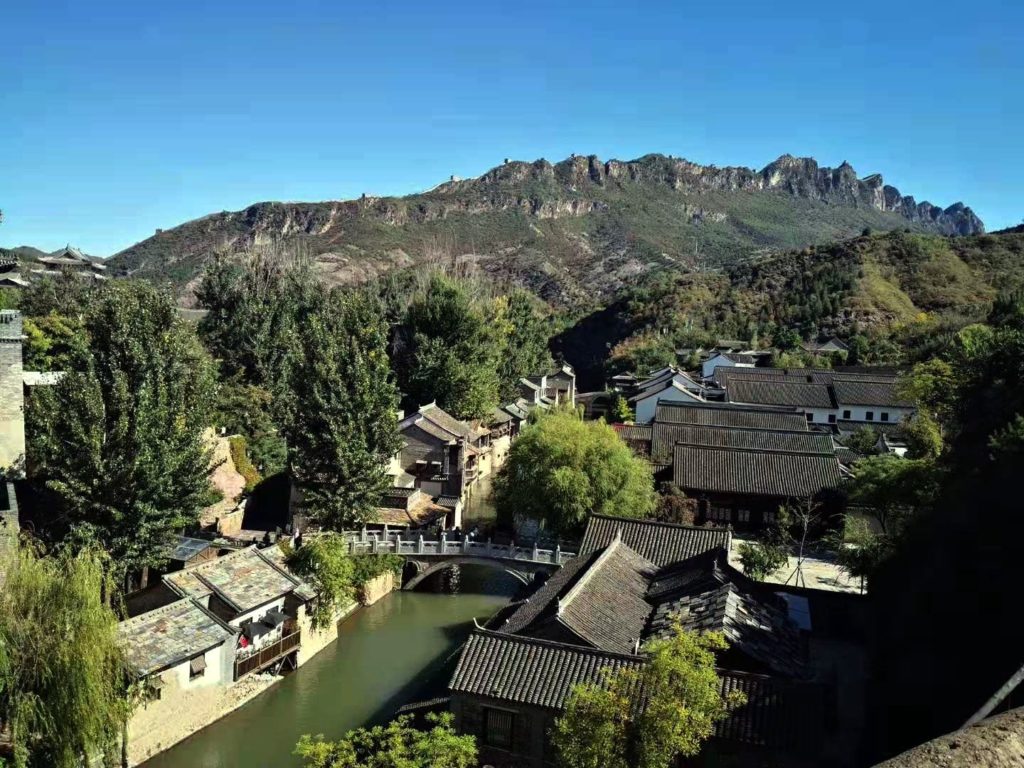
As I mentioned in this post, the organizers of the first Bordeaux Fete Le Vin funded me to join their three-day festival in Beijing’s Miyun County and I caught a ride there with some French diplomats and chamber of commerce people. What struck me most about the event, aside from the scale of Gubei Water Town, at the foot of the Great Wall, was the chance to reach new consumers.
Events such as Simply Bordeaux, the annual Grand Cru tour, and wine dinners tend to draw trade people and consumers who are already aficionados. Fete Le Vin can draw these, too, but also complete newcomers who stumble upon the festival as part of their trip to Gubei. Given it costs quite a bit of cash to visit, from entrance fees to transport and accommodations, these are people with some disposable income. And it can be scaled.
“If we can establish a successful Fete Le Vin in Beijing, we can then do it in other cities,” says Zhang.
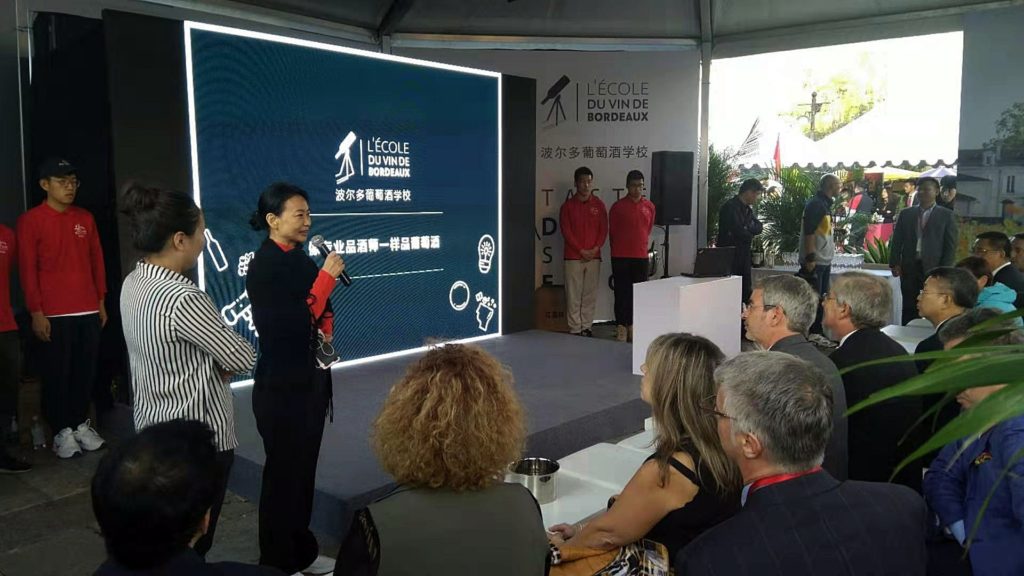
Zhang says she decided to launch this first festival in Beijing after much consideration. After Miyun County was finalized, she says it was an 18-month process to opening night, one that involved both officials and wine producers there.
“The festival is also a good way to also increase interest in Miyun’s wine,” she adds.
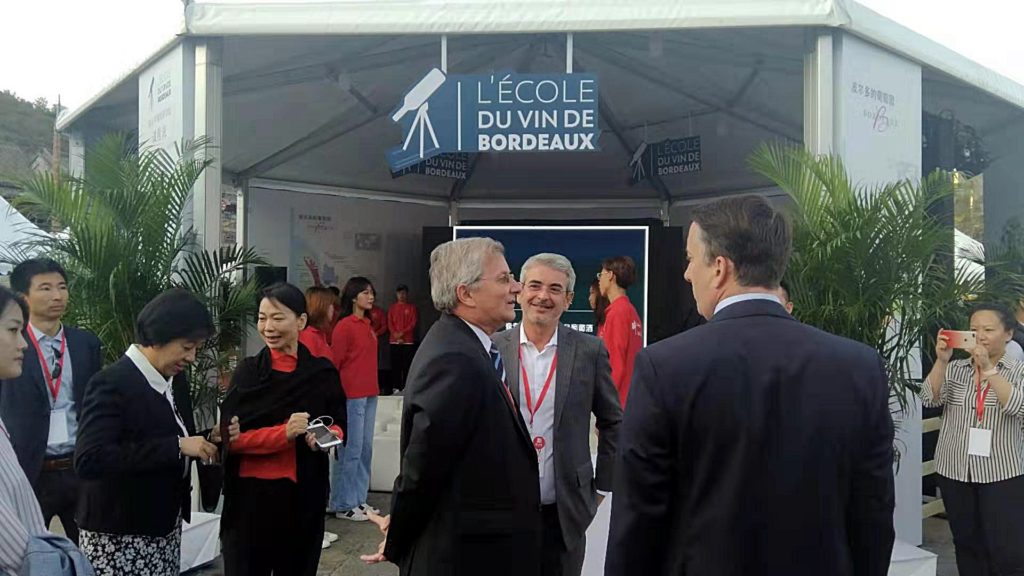
Though that didn’t stop people from questioning the move.
“A lot of people in Miyun asked, ‘Why organize a festival for Bordeaux, why not promote Miyun wines?'” she says. “But places like Fangshan [in Beijing] and Yantai [in Shandong] have wine festivals that are not very successful. Bordeaux’s Fete Le Vin is a big brand, it’s already successful in many countries, so it’s good promotion for Miyun County.”

Zhang is essentially a bridge between France and China. Between Bordeaux decision-makers on one side, like CIVB’s marketing director Christophe Chateau, and Miyun officials on the other, such as He Lijuan, vice chair of the county Chinese People’s Political Consultative Conference committee, and a driving force behind Gubei, and Yang Shan, who is responsible for Miyun’s handful of wineries.
This first festival didn’t come without challenges. While Miyun County is in Beijing, it hasn’t hosted events such as a Bordeaux Fete Le Vin. And red wine is still not widely popular in northern China.
“In Shanghai, in the south of China, a lot of people drink wine. Here in Beijing, in the north, people still drink Chinese liquor [baijiu],” explains Zhang. “Those who do drink usually don’t do it outside or by the glass. They usually do it in restaurants with a meal.”
With lessons learned from the three-day event, she is looking ahead to the next festival.
“Next year, Bordeaux will offer more wine and send more people — teachers, winemakers and VIPs,” she says. And that’s good for Miyun.
“Bordeaux is already famous,” she adds. “If Miyun wants to be famous for wine, they need to build their brand, too.”

Grape Wall has no sponsors of advertisers: if you find the content and projects like World Marselan Day worthwhile, please help cover the costs via PayPal, WeChat or Alipay.
Sign up for the free Grape Wall newsletter here. Follow Grape Wall on LinkedIn, Instagram, Facebook and Twitter. And contact Grape Wall via grapewallofchina (at) gmail.com.

Leave a Reply
You must be logged in to post a comment.